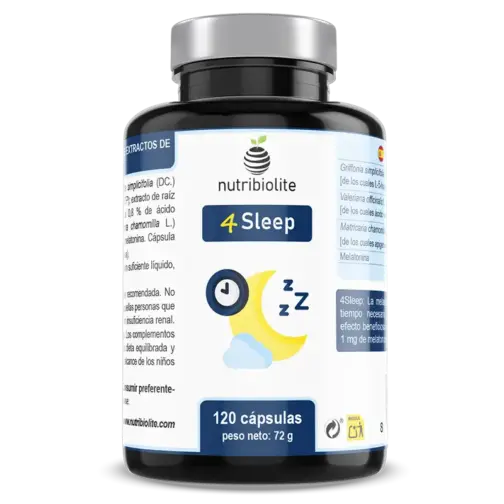A recent study published in BMC Oral Health in 2025(study in BMC oral health 2025) explored how different concentrations of melatonin influence the vitality and differentiation of human periodontal ligament stem cells. The results show that moderate doses of melatonin support bone cell development and maintain viability, while very high amounts can reduce it.
What does this mean outside the laboratory? The research suggests that melatonin is biocompatible and can stimulate key physiological processes when used in appropriate doses, supporting the body’s natural balance without disturbing its internal rhythms. For those looking to improve their nightly routine or deal with changes that affect sleep, choosing the right amount makes all the difference.
Melatonin, more than a sleep hormone
Melatonin is known to regulate the circadian cycle and synchronise periods of sleep and wakefulness according to changes in ambient light. In this new study, researchers cultured human stem cells with various concentrations of melatonin for up to 21 days. They found that low and medium doses (20-50 µM) promoted both cell viability and bone matrix formation, an indication of health and tissue regeneration.
In contrast, excessive concentrations reduced this vitality, showing that “more” does not always mean “better”. This finding is relevant to any nutritional supplement: respecting physiological doses helps to maintain the natural balance without straining the body.
Taking care of your internal rhythm starts with simple habits
It’s not just the milligrams that matter, but also the daily context. The body produces less melatonin with age or in the face of factors such as chronic stress, long journeys or changing shifts. Keeping regular bedtimes, eating a light dinner and dimming lights before bedtime are all gestures that encourage the natural release of this hormone.
Combining these habits with a formula in line with European recommendations – such as 1 mg before bedtime – supports the body without overloading it. Higher doses do not provide any further benefit and may even cause mild discomfort the following day.
Where a supplement like 4Sleep fits in
At times when the biological clock loses rhythm, whether due to prolonged stress, long journeys or hormonal changes, external support can help to restore it. 4Sleep, developed by Nutribiolite, follows this physiological logic: it combines melatonin (1 mg), recognised by the European Food Safety Authority (EFSA) for its sleep-inducing efficacy, with 5-HTP extracted from Griffonia simplicifolia, a direct precursor in the natural synthesis of serotonin and melatonin.
To this are added standardised extracts of valerian and camomile, plants traditionally valued for their relaxing effect without the risk of dependence or residual drowsiness. The result is a comprehensive formula designed to support the sleep-wake cycle while respecting the body’s natural limits.

Melatonin 1 mg and 5-HTP with relaxing plants.
Frequently asked questions about melatonin and rest
When does it make sense to use a supplement like 4Sleep?
It makes sense to use a supplement like 4Sleep when the natural sleep rhythm is disturbed and habits alone are not sufficient to restore it. Situations such as prolonged stress, long journeys with jet lag or hormonal fluctuations can affect the biological clock and make it difficult to rest. In such cases, a physiological aid based on melatonin (1 mg) combined with relaxing ingredients can accompany your nightly routines without causing dependency.
Why should you not take more than 1 mg of melatonin a day?
Various regulatory bodies indicate that higher doses do not increase the benefits and may even increase mild side effects such as headache or daytime sleepiness. The study cited above confirms that optimal amounts support healthy cellular processes while excess amounts can be counterproductive.
How does 5-HTP work in comparison to regular tryptophan?
5-HTP, present in Griffonia simplicifolia included in 4Sleep, is a direct precursor in the pathway to serotonin and then melatonin. It is more efficient because it avoids alternative metabolic pathways and favours rapid transit to neurotransmitters involved in emotional well-being and restorative sleep.
What are the advantages of standardised extracts over whole plants?
Standardising always guarantees an equal proportion of active compounds (such as valerenic acid or apigenin). This offers certainty about what you take every night and ensures consistency batch after batch.
Is it safe to combine tryptophan-rich foods with supplements such as 4Sleep?
Yes. Incorporating nuts or other foods that are natural sources of tryptophan reinforces the endogenous physiological pathway to serotonin/melatonin. The supplement adds precision in active doses when normal routines are not enough to fall asleep easily.
This content is for information only and is not a substitute for the advice of a healthcare professional.















